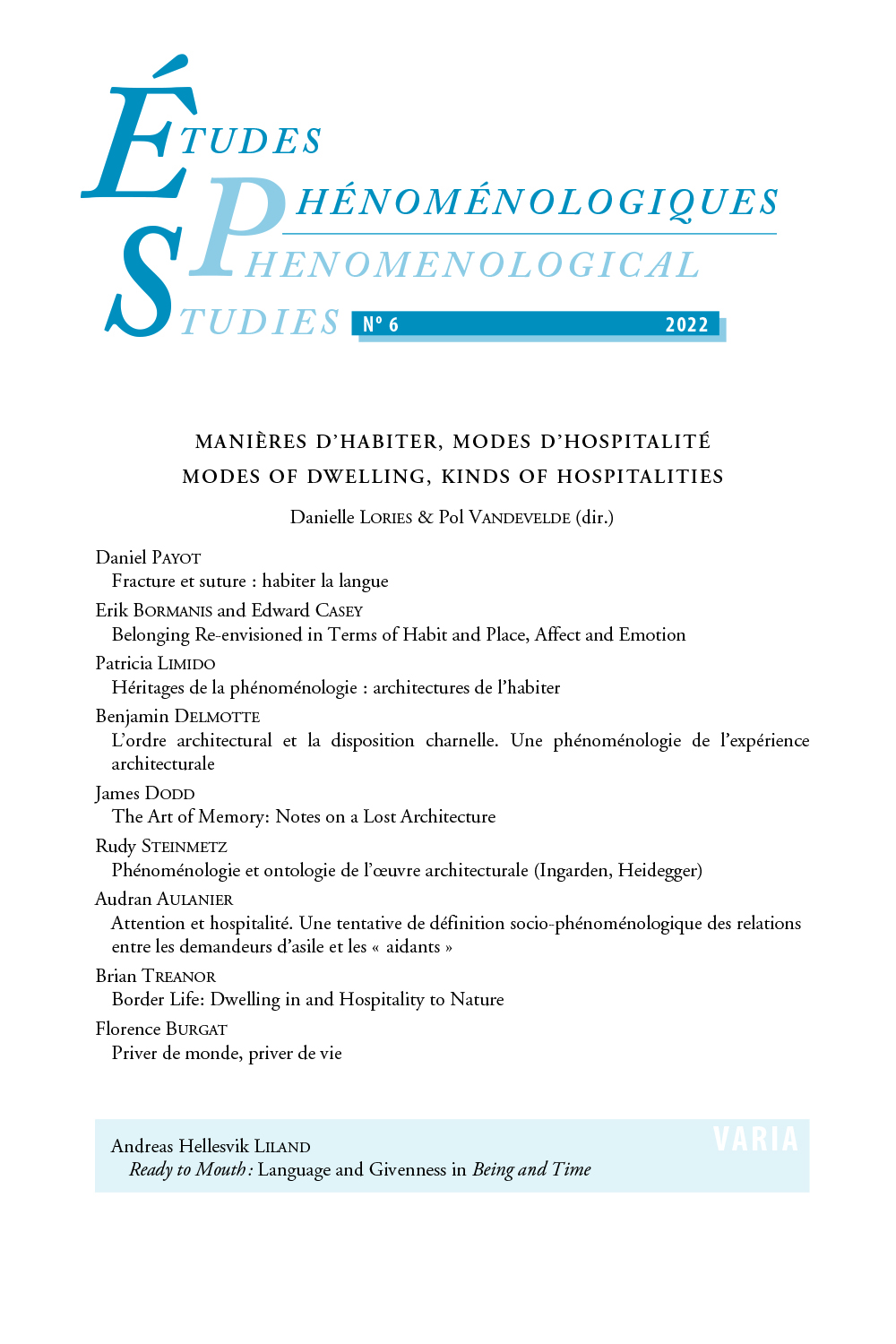 previous article in this issue previous article in this issue | next article in this issue  |

Preview first page |
Document Details : Title: Matière et forme dans l'épistémologie tanabéenne du néant absolu Subtitle: Tanabe Hajime (1885-1962), élève de la phénoménologie Author(s): BLAEVOET, Quentin Journal: Etudes phénoménologiques - Phenomenological Studies Volume: 5 Date: 2021 Pages: 153-171 DOI: 10.2143/EPH.5.0.3288754 Abstract : Tanabe Hajime’s thought may be summarized as an attempt to redefine the conditions for scientific knowledge and to reshape our contemporary epistemology based on the early works of Nishida Kitarō (1870-1945), Kantianism, and the newest phenomenological discoveries made by Edmund Husserl and Martin Heidegger. In this article, I would like to shed light on the specific role phenomenology played in the elaboration of what may be called Tanabe’s 'epistemology of Absolute Nothingness'. In order to do so, based on articles written by Tanabe between 1910 and 1931, I will show that Tanabe’s starting point is the demand for a Weltanschauung (a 'worldview') reuniting the ontological concepts of form and matter through a self-awakening ontico-ontological dialectic. This dialectic is motivated by phenomenology in the style of an impetus but must go beyond phenomenology. |
|


